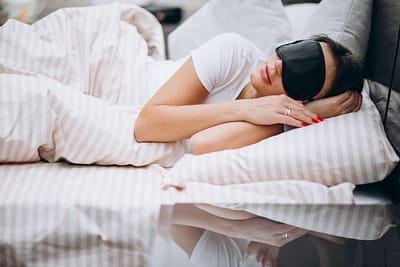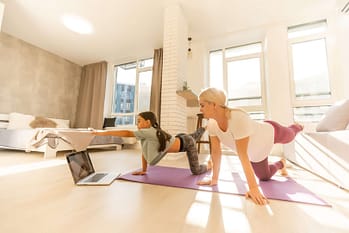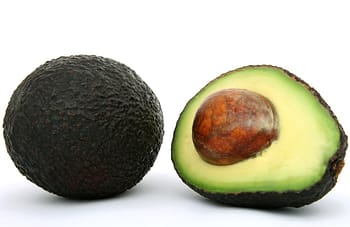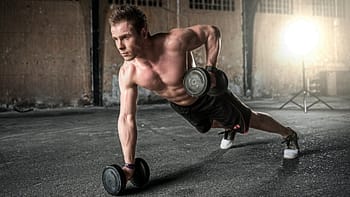Do you feel miserable because of the aching muscles after the hectic workout?
If yes, take this as a good sign, and don’t ever think about skipping the gym the next day!
Resuming the workout routine after a very long time or switching to a new level of exercise greets this uninvited guest – the Muscle Soreness. You will experience highly debilitating pain or tenderness in your muscles. But, it happens because of the micro tears in the muscles and excessive building up of waste products in them.
Don’t get worried, as this is a natural reaction in your body after a workout.
Keep reading the article to discover convenient solutions to this most common problem.
How to Reduce Muscle Soreness At Home?
You might be planning to spend a whole day resting on your bed after muscle soreness. But if it’s not that severe, taking rest will not ease the soreness. Pay heed to the below-mentioned tips that are easy to follow;
1. Massage
Massage is an effective therapy for muscle soreness. Doing massage relaxes the aching muscles and helps in muscle recovery. It improves blood and lymphatic flow and reduces inflammation and muscle tension.
Go for the self-massage technique (more convenient) almost 3 hours post-workout to unveil the beneficial effects. Apply the moisturizer or oil to the area and massage by squeezing, kneading, and gentle shaking of muscles, including;
- Thighs
- Calves
- Buttocks
- Shoulders
2. Ice Bath
Another advantageous method to alleviate muscle soreness is an ice or cold bath. This is preferred much because of its low cost and convenient technique. Ice bath relieves muscle soreness by alteration in blood flow, causing vasoconstriction and redirection of blood flow.
Be conscious of the temperature and time duration of staying in cold water. Immerse your body in cold water at almost 11 to 15 degrees Celsius for about 11 to 15 minutes to reduce muscle soreness post-workout.
3. Hydration
During strenuous exercises, the increased muscular temperature imposes structural damage to the muscles, leading to muscle soreness. Also, dehydration makes its way with the increased sweat rate and loss of electrolytes.
Staying hydrated is the most helpful way to deal with muscle soreness. Keep a water bottle with you and drink water before, during, and after the workout. You can also take any electrolyte drink and coconut water instead of plain water to prevent dehydration. Avoid the intake of sugary beverages strictly.

4. Sleep
While you sleep, your body is not resting as it goes through recovery and adaptation. During the deep stages of sleep, the Human Growth Hormone, a muscle-building chemical, is naturally produced in your body.
Taking a sound sleep of 7 to 9 hours improves the pain sensitivity, and levels of Growth Hormone, thereby enhancing your performance for the next session. Also, this is beneficial for accelerating the recovery of wounded muscles.
Final Takeaway!
First of all, Be Patient!
Muscle soreness might be very hurtful sometimes, but don’t let it ruin your fitness routine. Follow those simple and convenient tips mentioned earlier to dampen the discomfort caused by muscle soreness.
Also, take steps gradually to level up the intensity of your workout. Once your body is adapted to different kinds of exercises, muscle soreness will least interfere with the daily activities of your life.
- Cheung, Karoline & Hume, Patria & Maxwell, Linda. (2003). Delayed onset muscle soreness: Treatment strategies and performance factors. Sports medicine (Auckland, N.Z.). 33. 145-64.
- Zainuddin, Z., Newton, M., Sacco, P., & Nosaka, K. (2005). Effects of massage on delayed-onset muscle soreness, swelling, and recovery of muscle function. Journal of athletic training, 40(3), 174–180.
- Machado, A. F., Ferreira, P. H., Micheletti, J. K., de Almeida, A. C., Lemes, Í. R., Vanderlei, F. M., Netto Junior, J., & Pastre, C. M. (2016). Can Water Temperature and Immersion Time Influence the Effect of Cold Water Immersion on Muscle Soreness? A Systematic Review and Meta-Analysis. Sports medicine (Auckland, N.Z.), 46(4), 503–514. https://doi.org/10.1007/s40279-015-0431-7
- Cleary, M. A., Sweeney, L. A., Kendrick, Z. V., & Sitler, M. R. (2005). Dehydration and symptoms of delayed-onset muscle soreness in hyperthermic males. Journal of athletic training, 40(4), 288–297.
- Chennaoui, M., Vanneau, T., Trignol, A., Arnal, P., Gomez-Merino, D., Baudot, C., Perez, J., Pochettino, S., Eirale, C., & Chalabi, H. (2021). How does sleep help recovery from exercise-induced muscle injuries?. Journal of science and medicine in sport, 24(10), 982–987. https://doi.org/10.1016/j.jsams.2021.05.007



